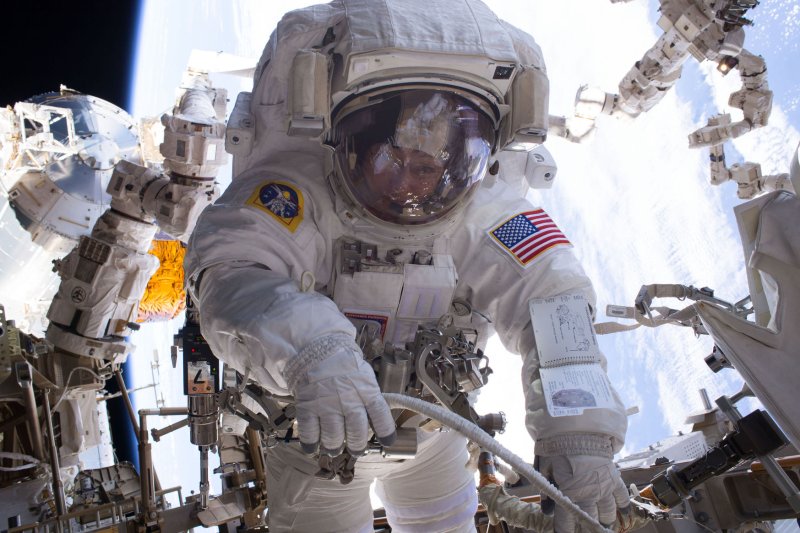NASA astronaut Peggy Whitson is seen on January 6, 2017, taking part in a spacewalk during Expedition 50 aboard the International Space Station. Photo by NASA/UPI |
License Photo
FRIDAY, May 12, 2017 -- Astronauts' heart and blood vessel function drops during long space missions, which limits their ability to exercise, a new study finds.
Researchers examined data gathered from nine men and women who spent about six months on the International Space Station.
Before their missions, the astronauts did a stationary bike exercise, which they repeated after returning to Earth. Comparing before-and-after results showed that their heart and small blood vessels became less effective at transporting oxygen to muscles.
The result: A drop of 30 percent to 50 percent in their exercise capacity, the researchers reported.
"It is a dramatic decrease," said study co-author Carl Ade, an assistant professor of exercise physiology at Kansas State University.
"When your cardiovascular function decreases, your aerobic exercise capacity goes down. You can't perform physically challenging activities anymore," he explained in a university news release.
Ade noted that earlier studies suggested this occurs because of changes in heart function. But, he added, "Our data suggests that there are some things happening at the level of the heart, but also at the level of the microcirculation within capillaries."
Learning more about why this happens could lead to preventive measures or treatments. It also is a key to planning for future long-duration spaceflights, such as journeys to Mars, the researchers said.
This research can also shed light on blood vessel function in older people or heart failure patients, Ade said.
"We have seen similar situations happen with heart failure and with aging," he said. "If we can better understand what is happening in the astronaut and how to prevent it, then we might be able to do the exact same thing in a patient who is older or who has heart failure."
The study was published recently in the Journal of Applied Physiology.
More information
NASA has more on the human body in space.
Copyright © 2017 HealthDay. All rights reserved.
![]()
















